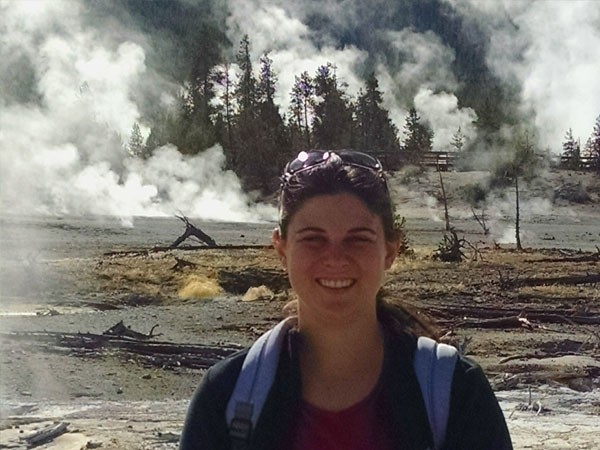 Kiley Seitz is a PhD graduate student with Dr. Brett Baker at The University of Texas Marine Science Institute. Her microbiology research is breaking new ground in how scientist’s think about microbes and how they are cycled throughout the ecosystems.Newly identified phylum, named Thorarchaeota, has been identified for Archaea - single-celled microorganisms. A graduate student at the University of Texas at Austin, Kiley Seitz, found that these microbes live under the sediment surface, where there is no oxygen. Seitz and colleagues proved that the microbes help degrade organic matter, fix inorganic carbon, and reduce sulfur. This discovery will shed new light to what happens beneath the surface and how organic matter is remineralized. In addition, Seitz notes that the Thorarchaeota group are near the base of the evolutionary tree, and future evolutionary investigations of this phylum will provide insights into the ancestral relationships between the archaea and eukaryotes. These findings were published this week in The ISME Journal, and cited as a research highlight by Nature.
Kiley Seitz is a PhD graduate student with Dr. Brett Baker at The University of Texas Marine Science Institute. Her microbiology research is breaking new ground in how scientist’s think about microbes and how they are cycled throughout the ecosystems.Newly identified phylum, named Thorarchaeota, has been identified for Archaea - single-celled microorganisms. A graduate student at the University of Texas at Austin, Kiley Seitz, found that these microbes live under the sediment surface, where there is no oxygen. Seitz and colleagues proved that the microbes help degrade organic matter, fix inorganic carbon, and reduce sulfur. This discovery will shed new light to what happens beneath the surface and how organic matter is remineralized. In addition, Seitz notes that the Thorarchaeota group are near the base of the evolutionary tree, and future evolutionary investigations of this phylum will provide insights into the ancestral relationships between the archaea and eukaryotes. These findings were published this week in The ISME Journal, and cited as a research highlight by Nature.Support for this research is provided by U.S. Department of Energy Joint Genome Institute, Office of Science of the U.S. Department of Energy, European Research Council, and Center for Dark Energy Biosphere Investigations.









